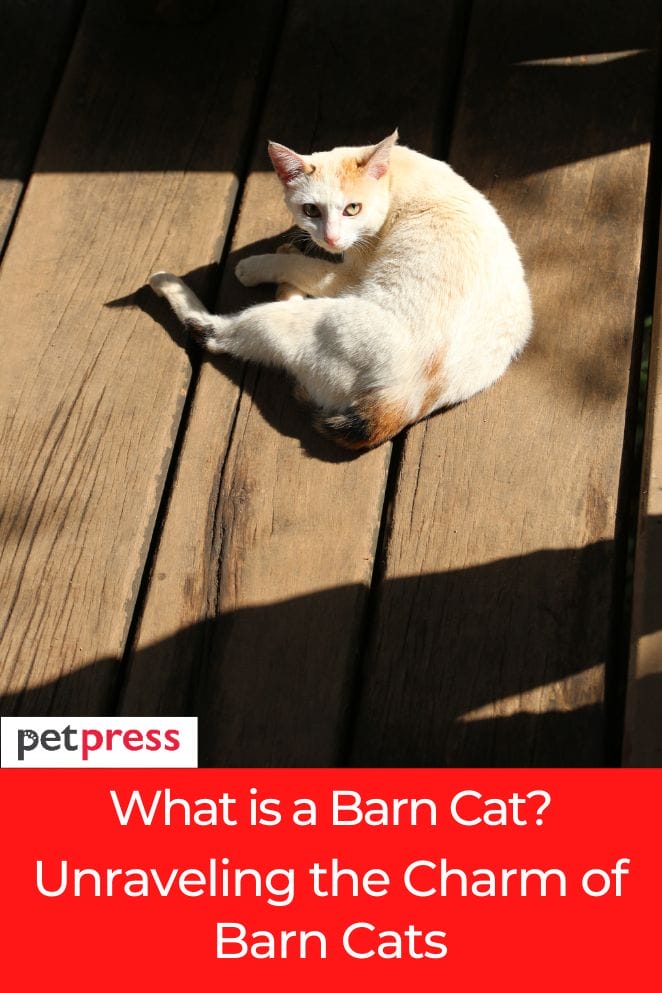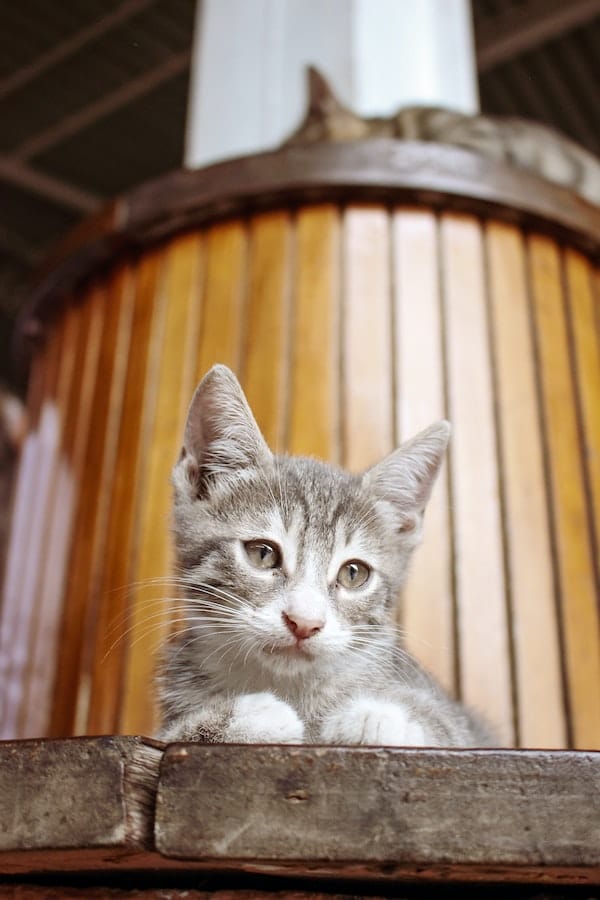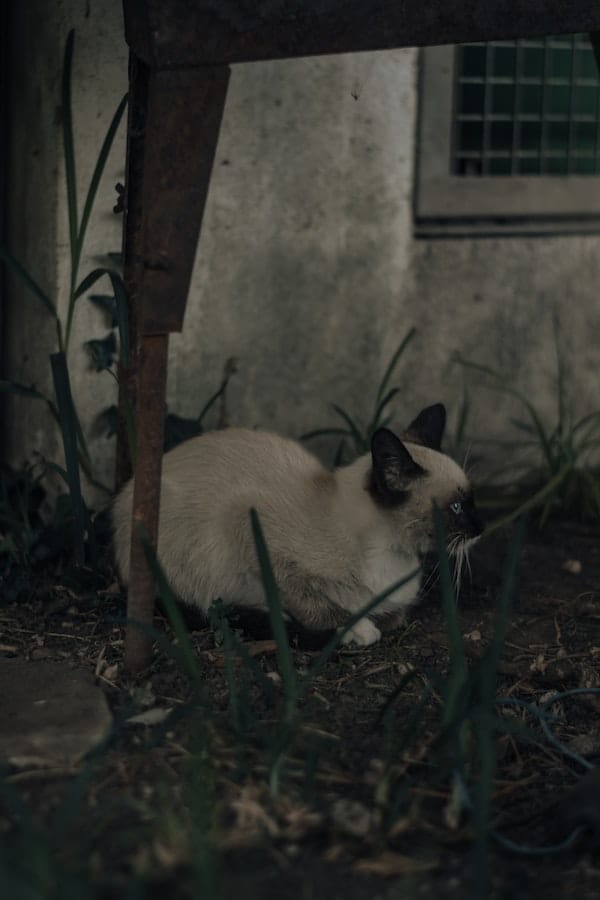
Have you ever heard of barn cats and wondered, “What is a barn cat?”
Join us on a journey to explore these hardworking felines, their history, and the numerous benefits they bring to the farm.
From their physical characteristics to their temperament, health, and care, this article is your comprehensive guide to understanding the world of barn cats.
What is a Barn Cat?
Barn cats, also known as barnyard or farm cats, play a vital role in agricultural settings as natural pest controllers.
These resilient felines are skilled hunters, helping keep barns and farms free from rodents and pests.
They form partnerships with farmers, receiving shelter and care in exchange for their pest control services.
Barn cats have a strong instinct for hunting and are like the ninjas of the cat world, patrolling the barns to protect their territory.
Their independent nature leads them to work the night shift on the farm, ensuring that stored goods and crops remain safe from pesky critters.
History of Barn Cats
Barn cats have a deep-rooted history dating back centuries, intertwined with the world of farming.
These felines have been cherished for their remarkable contributions in controlling rodent populations on farms.
Farmers recognized their natural hunting abilities, making them invaluable in safeguarding stored grain and maintaining farm ecosystems.
Over time, barn cats evolved with changing agricultural practices, but their significance endured.
They are like timeless legends, a crucial part of the farm family, and their presence continues to play a vital role in modern farming.
Benefits of Having a Barn Cat

Let’s talk about the multitude of benefits that come with having a barn cat on your farm. It’s like having a trusty partner who wears many hats, and a few whiskers!
- Pest control: First and foremost, barn cats are your natural pest control experts. They’re like the SWAT team for rodents and pests on your farm. With their sharp claws and hunting instincts, they keep those pesky critters in check. It’s a bit like having your very own exterminator who works tirelessly day and night.
- Economical solution: Think about it – hiring professional pest control services can be costly. But with barn cats around, you’ve got your own cost-effective, 24/7 pest management squad. They don’t charge by the hour; they work for room and board, which makes it a pretty sweet deal for farmers.
- Companionship: Barn cats bring a touch of companionship to the farm. It can be a bit lonely out there in the fields, but these feline friends are always there to lend an ear or share a purr. They’re like the furry therapists of the farm world, offering comfort after a long day’s work.
- Security: Their presence adds an extra layer of security to the farm. It’s like having a silent alarm system. They may be cuddly with you, but they’re fierce defenders of their territory. Their keen senses can alert you to any unusual activity, providing peace of mind.
- Low maintenance: Barn cats are pretty low-maintenance when it comes to care. They’re self-sufficient and independent, which suits the farm life perfectly. Just ensure they have shelter, food, and water, and they’ll do the rest. It’s like having a self-reliant farmhand.
- Environmentally friendly: Using barn cats for pest control is eco-friendly. It reduces the need for chemical pesticides, which can have harmful effects on the environment. It’s like going green in pest management.
- Historical connection: There’s also a historical connection to consider. Barn cats have been part of farm life for centuries, connecting the past to the present. It’s like honoring tradition and keeping the spirit of farming alive.
So, having a barn cat is not just about pest control; it’s about having a multifaceted ally on your farm.
They’re efficient workers, friendly companions, and guardians of your farmstead.
It’s a partnership that goes beyond the purrs and meows, enriching the farm experience in more ways than one.
Physical Appearance of Barn Cats
Size and weight
Barn cats, like a good tool, come in various sizes, each adapting to its surroundings.
You might encounter some that are lean and agile, perfectly suited for stealthy hunting missions.
Others may be a bit more robust, like the sturdy workhorses of the feline world. It’s a bit like choosing the right wrench for a job – you want the one that fits just right.
Coat color and texture
When it comes to their coats, barn cats are like living canvases.
They display a wide array of colors and textures, influenced by their genetics and outdoor lifestyles.
It’s like having a gallery of natural art right on your farm.
Some have sleek, shiny coats that glisten in the sun, while others may sport thicker, bristly fur that’s like a warm winter coat.
Physical features
What truly sets barn cats apart are their physical features, honed by nature for survival and hunting.
They’ve got sharp senses, like built-in radar, to detect even the tiniest movements of their prey.
Their keen eyesight is like having night-vision goggles, allowing them to prowl the fields under the moon’s glow.
And those whiskers?
They’re like sensitive antennae, helping them navigate in the dark.

Temperament of Barn Cats
General personality
Barn cats are like the rugged individualists of the feline world. They’re self-reliant and resourceful, a bit like the lone cowboy out on the open range.
These cats have a strong sense of independence, which serves them well in their role as pest controllers.
But don’t mistake their independence for indifference; they can be quite endearing and form unique bonds with their human companions.
Trainability
When it comes to training, barn cats are not your typical pupils sitting in obedience school.
They possess innate hunting skills that are crucial to their farm duties.
It’s like trying to teach a fish to swim – it’s in their nature.
They learn through observation and practice, becoming skilled hunters through experience.
Energy level
Barn cats have a remarkable energy level that keeps them agile and alert.
It’s like having a perpetual motion machine on four paws.
They need this energy to fulfill their pest-control duties, as stalking and catching rodents require agility and quick reflexes.
They’re like the athletes of the cat world, always ready for the next game.
Socialization needs
As for socialization, barn cats have their own unique way of interacting.
They’re like the diplomats of the farm, establishing territories and boundaries with other animals.
While they can be territorial, they often coexist with other farm creatures, like dogs and horses, in a sort of barnyard diplomacy.
Early exposure to various animals helps them become well-adjusted members of the farm community.
Health Consideration of Barn Cats

Common health problems
Just like any other cat, barn cats can face some health hiccups along the way.
It’s like driving an old pickup truck; you need to keep an eye on the engine.
Some common concerns may include respiratory infections, parasites, or injuries from their adventurous hunting expeditions.
Regular vet check-ups are like the pit stops in a race, ensuring that your barn cat stays healthy and strong.
Lifespan
When it comes to lifespan, barn cats typically live about 10 to 15 years, provided they receive proper care.
It’s like nurturing a timeless treasure.
Factors like genetics, diet, and shelter quality can influence their longevity.
Just like maintaining a cherished antique, taking care of your barn cat involves regular attention and care to ensure they accompany you on your farming journey for many years to come.
Care and Training of Barn Cats
Food and water
Just like any farmhand, barn cats need proper nutrition to stay in top form.
It’s like filling up the gas tank in your tractor – without it, they won’t run smoothly.
Ensure they have access to quality cat food and clean water.
While they’re skilled hunters, a balanced diet is essential for their overall health.
Shelter
Shelter is vital for barn cats, especially during extreme weather conditions.
Think of it as providing a cozy cabin for a weary traveler.
Barns, sheds, or specially designed cat houses can serve as their refuge from harsh weather, whether it’s scorching heat or freezing cold.
It’s like giving them a safe haven amidst the elements.
Exercise
Barn cats are natural athletes, and their exercise needs are fulfilled through hunting.
It’s like having a built-in gym membership. Hunting keeps them agile and mentally stimulated.
Encourage their natural instincts by allowing them to roam freely and hunt. It’s the best way to keep them fit and happy.
Grooming
Barn cats are like the rugged cowboys of the feline world.
They’re pretty low-maintenance when it comes to grooming.
These self-sufficient felines are like the self-repairing tractors on the farm.
They manage their own hygiene, cleaning themselves with those dexterous tongues.
Occasionally, they might need a helping hand, like removing burrs or checking for injuries, but for the most part, they’re self-reliant when it comes to staying clean.

Vaccinations and parasite control
Just like farm animals, barn cats need proper healthcare.
It’s like giving your tractor regular maintenance.
Vaccinations are crucial to protect them from diseases, and parasite control is essential to keep them free from fleas, ticks, and worms.
Regular vet visits are like routine inspections that ensure everything is running smoothly.
Spaying or Neutering
Population control is an important consideration for barn cats.
It’s like managing a herd of cattle to ensure they don’t overpopulate the range.
Spaying or neutering your barn cats not only helps control the population but also improves their overall health.
It reduces the risk of certain diseases and makes them less likely to wander off in search of mates.
Conclusion
Barn cats are essential and versatile members of the farm community.
They excel at pest control, offer companionship, and contribute to the unique character of farm life.
Their adaptability, self-reliance, and distinctive physical attributes make them indispensable for maintaining a healthy and harmonious agricultural environment.


GIPHY App Key not set. Please check settings